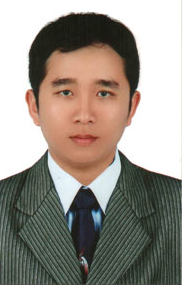EdgePV: Collaborative Edge Computing Framework for Task Offloading
Published in 2021 IEEE International Conference on Communications, 2021
Abstract: Recent analytical research has pointed out that almost all vehicles spend over 95% of their times in parking lots, so the powerful computing resources of parked vehicles (PVs) are being underutilised. However, those of PVs can be recognized as the promising computation nodes for task executions as an extension on the existing network architecture. In this paper, we propose a novel collaborative computing paradigm that efficiently offloads online heterogeneous computation tasks. Moreover, we model and investigate the feasibility of PVs to handle the online computational tasks during peak hours. To maintain high service availability, a container orchestration (e.g. Kubernetes) is advocated to integrate into the existing infrastructure due to its cutting-edge features such as auto-healing, load-balancing, security. Kubernetes system that coordinates PVs can reduce unexpected failures caused by the mobility of PVs by running a sufficient number of task replicas. Unfortunately, offloading the task replicas in collaborative platforms has not been well studied. Consequently, we present an intelligent metaheuristic algorithm to deal with the task offloading problem considering a number of task replicas meeting the stringent constraints. To prove its efficiency, our proposed algorithm is compared with a set of heuristics. Extensive evaluation demonstrates that our proposed paradigm improves task acceptance ratio and average offloading costs for more than 40% at the highest task arrival ratio compared to the existing collaborative architecture. Additionally, owners of PVs can be beneficial by sharing their idle vehicle resources through incentives received.
Recommended citation: K. Nguyen, S. Drew, C. Huang and J. Zhou, “EdgePV: Collaborative Edge Computing Framework for Task Offloading,” ICC 2021 - IEEE International Conference on Communications, 2021, pp. 1-6, doi: 10.1109/ICC42927.2021.9500400.
